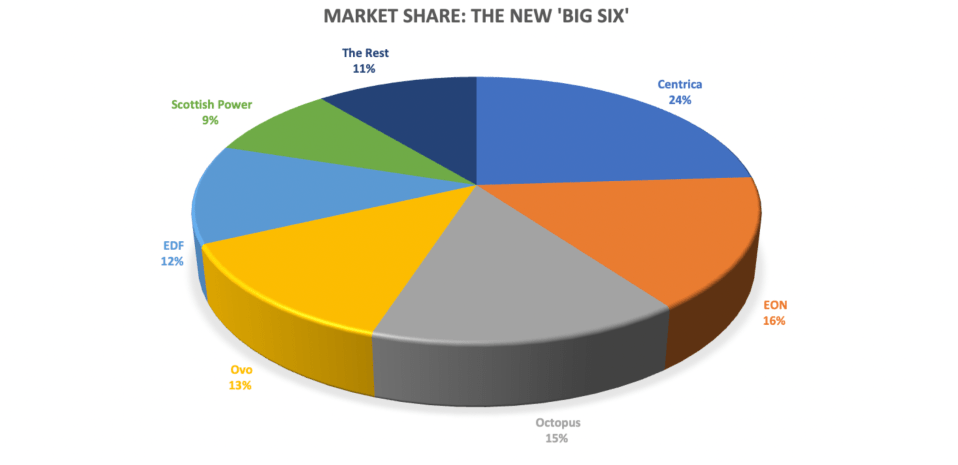Energy firms split as Ofgem boss calls for price cap rethink

Tuesday, August 15th, 2023 at 7:03 in the evening
The leaders of energy companies are divided on the significance of the price cap in the United Kingdom's retail market. There appears to be a disagreement between smaller suppliers and the dominant six companies regarding its purpose in safeguarding households against exorbitant bills.

Jonathan Brearley, the CEO of Ofgem, has called on government officials to reassess the effectiveness of the current price cap, describing it as overly expansive and unsophisticated. This plea comes in the wake of the domestic energy crisis, which resulted in the demise of 30 energy suppliers and the de facto nationalization of Bulb for a whole year.
The price limit was created to protect loyal customers from facing increased bills due to suppliers focusing on attracting new customers with lower rates.
Nonetheless, it also hindered suppliers from transferring the escalating wholesale expenses to consumers, thereby adding to the instability in the sector. As a result, numerous small energy companies were forced to leave the market, causing households to lose around £2.7bn during the winter of 2021. The price cap was eventually revised in April, addressing this issue.
Currently, the head of the oversight authority is unsure if the system is operating as planned, given worries that the price restriction is exacerbating the hardships faced by families during a difficult time of rising living expenses.
"The price limit was created to regulate a market that was relatively steady, before the year 2020, and it proved effective. However, in this unpredictable market, the price limit has both advantages and disadvantages. Therefore, we would appreciate an open discussion regarding the future of pricing regulation," he informed The Guardian.
Nigel Pocklington, CEO of up-and-coming energy provider Good Energy, expressed his appreciation for Brearley's endorsement of an extensive discussion regarding the future of energy price regulation.

In an interview with City A.M., he expressed his belief that the price cap is an ineffective measure of public policy. He argues that instead of achieving its intended purpose, the price cap is actually detrimental to consumers. According to him, this policy has not succeeded in its objective, as it has led to reduced competition in the market and additional financial burdens for consumers due to the bankruptcy of certain companies.
Instead, the energy executive expressed a desire to witness more "careful thought" given to the concept of a social tariff. This would involve providing focused assistance to customers who are particularly vulnerable. It is anticipated that the government will not introduce additional support for households during the winter months, despite energy bills remaining unusually high.
Bill Bullen, the CEO of Utilita Energy, expressed to City A.M. recently that the price cap poses the largest threat to supplier profitability.
He has additionally advocated for additional focused assistance to households, estimating that a £6bn aid package could offer urgent relief to 10 million energy users with low incomes during the upcoming winter season.
Nonetheless, Greg Jackson, the CEO of Octopus Energy, a company that serves almost five million customers, stated in an interview with City A.M. in June that a social tariff, which Octopus does not endorse, would not be a feasible alternative to the price cap.
"The main catalyst behind energy companies prioritizing efficiency, rather than burdening consumers with excessive costs, was the implementation of the energy price cap. Since energy prices can be quite unclear, some kind of pricing safeguard is crucial for all individuals," he stated.

He made a case that the industry could face a scenario where responsible individuals who pay their bills diligently are excessively exploited by established private companies. The government's intention to prevent this situation is evident through the recent energy market reforms.
"We simply cannot allow a scenario where inflated corporations continue to transfer exorbitant expenses onto unsuspecting consumers, it is morally unjust," he stated.
Pressure On Challenger Banks: Big Six Take Action
Newcomer suppliers have encountered additional challenges when it comes to dealing with rising wholesale prices amidst the energy crisis. Additionally, they have been burdened by the need for significant capital for long-term hedging, which is not as much of a concern for established suppliers with larger incomes and a larger clientele.
With six suppliers once again dominating more than 90 percent of the market, it brings up concerns about hindering creativity. Ofgem is striving to find a middle ground between financial control and enabling new players to enter the market.
John Redwood, a former senior member of the Conservative party and an experienced Member of Parliament, has urged the government to abolish the cap. According to him, this cap acts as a form of price regulation that leads to bills staying higher for a longer duration than necessary.
In an interview with City A.M., he expressed his view that the regulations on pricing, which can maintain high bills even when prices decrease, ought to be eliminated. The government should guarantee that low-income households can access the energy they require by means of the welfare system. Additionally, the competition between energy providers should be reinstated.
When asked for their input earlier today, the department responsible for maintaining energy security and achieving net zero confirmed that they are currently conducting their own examination of the energy system.
According to a representative, the government constantly strives to ensure that the energy market functions in favor of consumers, shielding them from exorbitant bills and guaranteeing that households receive the most advantageous arrangement. The ongoing consultation focuses on determining the optimum approach to enable individuals to fully enjoy the advantages that arise from transitioning to a more intelligent and adaptable energy system.













































































